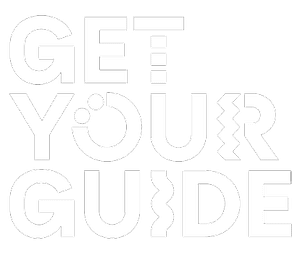Compiled March 10, 2023
Policy Overview
Use of Language Surrounding Disability
“Disabled” is not a bad word; Many institutions prefer identity-first language when talking about disability (i.e. “person with a disability”). However, this can become less clear-cut when describing specific disabilities, especially surrounding conversations about mental health. There is a more modern movement by self-advocates to use identity-first language instead, as a way to reclaim words and identities (i.e “autistic person” or “disabled person”).
The best approach is to take cues from the person themselves, as each disabled person is unique, and it is important to respect their language choices when referring to someone’s disability. When in doubt, it is best to directly ask the person how they like to be described and you should never make an assumption.
Specific Terms to Note
- Wheelchair-users (not wheelchair-bound)
- D/deaf/HOH: Deaf, deaf or hard of hearing (not hearing-impaired)
- blind/partially-sighted or person with vision loss
- Assistance dogs [UK] (as opposed to other countries that refer to them as “service dogs”).
- Non-disabled people (not able-bodied, certainly not normal)
- Accessibility services rather than disability services (focuses on accommodations)
Rationale
We believe in promoting equity and ensuring that all our services are fair and sensitive to the needs of all participants. To achieve this objective, Uncomfortable Cities Ltd. is committed to making its website, walking tours, and other activities accessible to people of all abilities. We achieve this by ensuring that our digital properties minimise barriers that could prevent people from using them, whether they are employees within the organisation or members of the public visiting our website. We also ensure that all walking tour routes are designed with accessible adaptations. Additionally, we provide accessibility information for all our activities.
All our web pages and apps will “comply with the technical requirements of Level AA of the Web Content Accessibility Guidelines (WCAG) 2.0.” This is a universally acceptable level of accessibility, with precise technical requirements developed by the World Wide Web Consortium’s Web Accessibility Initiative (WAI).
All our walking tours and products will comply with the Equalities Act 2010 and every effort will be made to make reasonable adjustments and accommodations.
Scope of Policy
The term ‘accessibility’ refers to the design of products, devices, services, or environments for people with disabilities. Reasons why accessibility is important can include: reduced isolation of people with disabilities, allowing people to fulfil their potential, general compassion.
The core activity of Uncomfortable Cities is walking tours, however as the organisation grows, there is scope for a diversity of roles for all abilities, in keeping with our mission statement.
Mission Statement
Our mission is to collaboratively challenge Britain’s role in creating the uncomfortable histories and legacies of privilege, power, inequalities, imperialism, and discrimination around the world. We provide opportunities for research-informed public dialogue that question established narratives and break down institutional barriers in order to advocate for justice and accountability.
This policy sets out Uncomfortable Cities’ commitment to ensuring that our products and our services are accessible for people with disabilities.
Expected Outcomes
- Alt text for all images and providing non-visual alternatives where appropriate
- All essential audiovisual information is captioned, described as necessary or provided in alternative formats
- Content can be navigated with just a keyboard or speech recognition tools
- The website can be used with a screen reader
- Content is structured, ordered and labelled appropriately
- Walking tours are made as accessible as reasonably possible
Mechanisms for on-going Review
Uncomfortable Cities will conduct an accessibility review annually of its online resources and in-person services to ensure adherence. This review will be undertaken by the Mission Officer or one of the Directors.
Additionally, feedback forms are sent out to all participants after each activity and these will allow space for any comments on accessibility to be anonymously submitted to the company. Any relevant comments will be forwarded onto the Operational Director for review and Uncomfortable Cities will do their best to address the concern.
Technical Standards
Uncomfortable Cities will adhere to level AA of the Web Content Accessibility Guidelines (WCAG) 2.0.
This will include:
- Alt text for all images and providing non-visual alternatives where appropriate
- All essential audiovisual information is captioned, described as necessary or provided in alternative formats
- Content can be navigated with just a keyboard or speech recognition tools
- The website can be used with a screen reader
- Content is structured, ordered and labelled appropriately
Activity Standards
Marketing
All posters and leaflets will be designed with accessibility principles in mind:
● Fonts will be designed so that anyone can use
● Images will be used as an alternative to text
● All words in hashtags will be capitalised on all platforms
Walking Tours
The guide will be aware of the safety assessment and will accommodate routes as needed on tours to avoid obstacles
Carers or accessibility support caretakers will always be welcome to attend tours free of charge when they are accompanying their client.
Extensive and honest information will be provided before the tour to participants, including:
- If the tour is step free
- Number of possible seating or rest areas
- Whether there will be loud noises or busy spaces
For Wheelchair users and those with Reduced Mobility
With prior request, guides will adapt routes to ensure the tours are suitably paced and/or wheelchair accessible.
Deaf or Hard-of-Hearing
A written outline of the tour will be provided upon prior request. Guides will be notified ahead to time to speak slowly and clearly to the best of their ability.
If additional accommodations are requested, such as lip reading or auditory amplifiers, these will be accommodated to the best of our ability, but cannot be guaranteed if specialised equipment needs to be utilised.
Visually Impaired clients
For clients who are visually impaired, the guide will ensure content is descriptive of the buildings and the objects being considered.
Assistance animals will be welcome on all walking tours.


